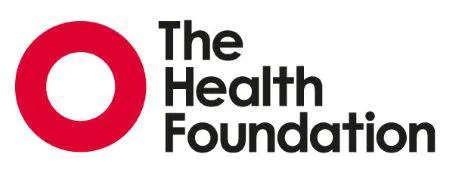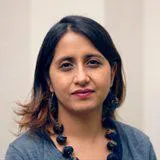Please note: this event has passed
The aim of the event will be to discuss recent research and policy implications around ethnic inequalities in health(care) and care quality among people with multiple long-term health conditions.
The event brings together discussions from recent research studies funded by the Health Foundation, and practice and policy experts around the complexities and processes by which ethnic inequities in healthcare for people with multiple long term conditions are developed and reproduced.
We hope that by the end of the event, attendees will have gained insight into:
- the state of the art on ethnic inequalities in health(care) and care quality for people with multiple conditions.
- the approaches required to better understand ethnic inequalities in multiple health conditions
- the challenges that hinder our understanding of these inequalities and research and policy recommendations to reduce ethnic inequities in healthcare for people with multiple long-term conditions
|
Time |
Agenda Item
|
Speaker |
|
11:00-11:05 |
Welcome and introductions |
Laia Bécares |
|
11:05-11:10 |
Opening remarks |
Katherine Merrifield |
|
11:10-11:20 |
Multiple health conditions and race: tackling the ‘causes of the causes’ |
Habib Naqvi |
|
11:20-11:30 |
Ethnic inequalities in healthcare and care quality among people with multiple conditions |
Brenda Hayanga |
|
11:30-11.40 |
Audience Participation - Q& A |
Laia Bécares/Mai Stafford |
|
11:40-11:50 |
Marginalised and excluded- Ethnic inequalities in severe mental health and long-term conditions |
Jayati Das Munshi |
|
11:50-12:00 |
You only had to ask: what people with multiple conditions say about health equity |
Eve Riley |
|
12:00-12:10 |
Audience Participation - Q& A |
Laia Bécares |
|
12:10-12:20 |
Better data, better analysis, but what has changed? Some reflections on tackling racial inequality in healthcare in Britain |
Jabeer Butt |
|
12:20-12:40 |
Discussion and Questions from audience |
Laia Bécares/Mai Stafford |
|
12:40-12:45 |
Closing remarks |
Laia Bécares |

About the speakers
- Katherine Merrifield
Katherine is Assistant Director in the Healthy Lives team at the Health Foundation leading work to improve public health policy, systems and practice. Her work focuses on supporting the public health leadership system, influencing national, local and regional government to take joined up action to tackle the wider determinants of health and building insights into how to communicate health inequalities to the public.
- Habib Naqvi
Habib is Chief Executive of the NHS Race and Health Observatory, which works to identify and tackle ethnic inequalities in health and care by facilitating research, making health policy recommendations and enabling long-term transformational change.
Habib joined the NHS in 2001, managing large public health research programmes in the South West of England. He spent a number of years working at the Department of Health and Social Care where he led national equality and diversity policy, including on the health sector’s response to the UK government’s review of the Public Sector Equality Duty.
He joined NHS England in 2013, where he directed the development and implementation of national health equity programmes for the NHS workforce, patients and communities. Habib has spoken and written widely on health equity and has given evidence to the House of Commons Health and Social Care Committee.
Habib volunteers as a trustee of the Mary Seacole Trust and at Somerset County Cricket Club. He was awarded an MBE in the 2019 Queen’s Birthday Honours for services to equality and diversity in the NHS and was listed in the Health Service Journal’s ‘100 most influential people in health in 2022’.
- Brenda Hayanga
Brenda is a Research Fellow at the Department of Global Health and Social Medicine, King’s. Her current research is concerned with ethnic inequalities in healthcare use and care quality among people with multiple health conditions. Her ESRC-funded PhD research explored the effectiveness and suitability of social isolation and loneliness interventions for older people from minoritised ethnic groups.
Her research interests include ageing, ethnic inequalities, social isolation, loneliness, multiple long-term conditions, mixed methods research, evidence synthesis, narrative research, and intersectionality informed approaches
- Jayati Das Munshi
Jayati is a Clinical Reader in Social and Psychiatric Epidemiology at King's and Honorary Consultant Psychiatrist with South London & Maudsley NHS Trust. She has led work which uses large-scale routine data and data linkages, informed by qualitative methodologies, to understand mental health inequalities, over the life course.
She has a keen interest in maximising the potential of datasets to understand mental health inequalities, through a range of approaches including data linkage and secondary data analysis. Her main areas of expertise relate to inequalities at the physical/ mental health interface and particularly mortality in severe mental illnesses, and she has a particular interest in understanding ethnic inequalities in mental health.
She has led work for the WHO, leading to guidelines for the management of physical health in people with severe mental illnesses, she is an advisor the UK Adult Psychiatric Morbidity Surveys, and has worked in an advisory capacity for the Office for Health Improvements and Disparities (previously Public Health England). With Professor George Ploubidis (Director of CLS, UCL) she co-leads a platform on cohorts and quantitative methods, for the ESRC Centre For Society and Mental Health, at King's.
- Eve Riley
Based at Macmillan Cancer Support, Eve leads The Richmond Group of Charities' work on improving care and support for people living with multiple long-term health conditions.
She is particularly interested in health equity, the wider determinants of health and how to ensure lived experience guides and informs decision-making. Between 2018-2021 she managed The Taskforce on Multiple Conditions, a partnership programme with the Royal College of General Practitioners and Guys and St Thomas’ Charity to improve the lives of people living with, or caring for, people with multiple long-term conditions.
- Jabeer Butt
Jabeer has an international reputation for his evidence-based work tackling discrimination and disadvantage. His studies have been used to inform government thinking, including interventions such as Sure Start, as well as the NSPCC’s Grove House Family Centre. Jabeer provides leadership on the Strengthening Families, Strengthening Communities (SFSC) parenting programme and is currently co-investigator on a £1.5 million NIHR-funded randomised control trial of the SFSC programme, being led by Professor Richard Watt at University College London.
Jabeer has a key role in the Health and Wellbeing Alliance, which has helped create better conversations between the Black and minority ethnic-led voluntary sector and the Department of Health and Social Care (DHSC), NHS England and Public Health England. He secured a £485,000 grant from the DHSC to support older people living with dementia as part of the emergency response to coronavirus (COVID-19).
Jabeer was on the Marmot Advisory Group, supporting Sir Michael Marmot to produce his report on the social causes of health inequalities. He is also co-investigator on the £1.3 million National Institute of Health and Care Research (NIHR) funded extension of the VirusWatch study focusing on COVID-19 and the Black, Asian and minority ethnic and migrant communities, led by Professor Robert Aldridge of University College London.
Jabeer also sits on a number of other boards and committees. He was awarded an OBE in the 2013 Queen’s New Year Honours List for his services to health equality.
Ethnic inequalities in Healthcare Project members
Mai is a Senior Analytical Manager at the Health Foundation. She has a background in social epidemiology and leads a programme of work producing research and evidence to understand inequalities in health and care.
Laia is a Professor of Social Science at King’s. She is a social epidemiologist with expertise in ethnic inequalities and life course processes. She is an Editor of Sociology of Health and Illness and serves on the Academic Reference Group of the NHS Race and Health Observatory.
Dr Brenda Hayanga
Brenda is a Research Fellow at King's. She has expertise in the ageing of minoritised ethnic group people, ethnic inequalities in health, intersectionality and mixed-methods research.

